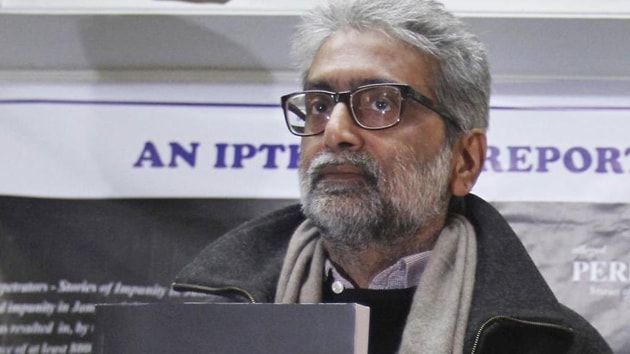Gautam Navlakha’s arrest shield extended by Supreme Court till October 15
Navlakha’s request to cancel a first information report (FIR) filed against him in the January 1, 2018 caste clashes at Bhima Koregaon in Maharasthra’s Pune district had been rejected by the Bombay high court.
The Supreme Court on Friday extended interim protection against arrest to civil rights activist Gautam Navlakha until October 15 in a case related to the January 1, 2018, caste clashes at Bhima Koregaon in Maharashtra’s Pune district, and asked the state government “not to trouble him” in the meantime.

A bench comprising justices Arun Mishra and Deepak Gupta delivered the order on the day the interim protection against arrest given to Navlakha by the Bombay high court was set to lapse. The bench also asked the Maharashtra government to produce before it material collected against Navlakha.
The ruling came after five judges recused themselves from hearing Navlakha’s appeal in the past five days. On Thursday, Justice S Ravindra Bhat became the fifth after Chief Justice of India, Ranjan Gogoi, and justices NV Ramana, Subhash Reddy and BR Gavai had declined to be part of the bench hearing the matter.
In its order, the bench said: “Certain material which was produced before the high court, in a sealed cover, is not available today. The learned counsel appearing for the State of Maharashtra has prayed for time to produce the material. In the meantime, interim protection granted by the high court shall continue.”
The bench fixed the case for further hearing on October 15.
On September 13, the Bombay high court dismissed Navlakha’s petition to quash a first information report (FIR) registered against him by Pune police over the Bhima Koregaon violence that broke out on the 200th anniversary of a British-era war, leaving one person dead and 40 more injured. Pune police, in the FIR, slapped charges against Navlakha under the Unlawful Prevention Activities Act (UAPA) for allegedly having links to Maoists.
Dismissing Navlakha’s petition, the Bombay high court protected him against arrest for three weeks so that he can approach the Supreme Court.
Appearing for Navlakha, senior advocate, Abhishek Manu Singhvi, impressed on the court that his client was a prominent civil rights activist and journalist and had enjoyed interim protection from arrest for the last 18 months. He said the case did not attract provisions of the UAPA and documents relied on by the police against Navlakha had never been recovered from him.
At one stage, Justice Mishra questioned Singhvi, “Why are you [Navlakha] vouching the cause of Maoists ?”
Singhvi replied that Navlakha was not associated with Maoists and he was only a member of People’s Union of Democratic Rights (PUDR). “I am not a part of any banned organisation and have condemned violence by Maoists or others,” he said on behalf of Navlakha. “The Supreme Court staying the arrest of Navlakha is welcome; but the fact that he has been under perpetual scrutiny and a public and media trial despite not being questioned for several months is a tragic commentary on our criminal justice system. Clearly, an individual is up against an oppressive state machinery and its investigative powers that can summarily malign reputations and subject one to coercive intimidation. The fact that several judges have recused themselves from hearing the case is disconcerting,” said senior Congress spokesperson Sanjay Jha.






